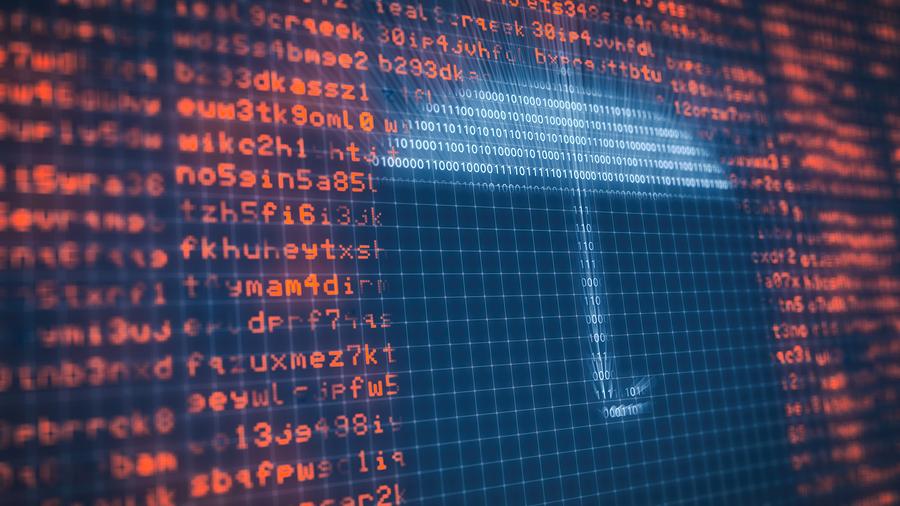How Robust Data Destruction Enhances Your Overall Cyber Security Measures
How Robust Data Destruction Enhances Your Overall Cyber Security Measures
Blog Article
The Importance of Effective Information Damage Practices in Safeguarding Sensitive Information and Ensuring Computer System Safety And Security
In an age where information violations are progressively typical, the relevance of efficient information damage practices can not be overemphasized. Carrying out robust information destruction techniques not just reduces these threats however additionally straightens with legal conformity requirements, guaranteeing that organizations copyright their track record and foster customer count on.
Recognizing Information Destruction
Recognizing data devastation is crucial in today's electronic landscape, where delicate info can easily be jeopardized. Efficient data destruction includes not merely ensuring but deleting data that information is irretrievable through detailed methods. This process is necessary for companies that deal with private client information, intellectual building, or inner records, as any breach can cause extreme economic and reputational repercussions.
Information devastation incorporates various strategies, consisting of shredding physical media, degaussing magnetic storage space tools, and employing software-based services that overwrite information numerous times. Each approach serves a specific objective and needs to straighten with the level of sensitivity of the information being disposed of. Physical devastation is often chosen for tough drives including very private data, while software application techniques might be adequate for less delicate details.
Moreover, adhering to market standards and policies, such as the General Data Security Regulation (GDPR) or the Medical Insurance Transportability and Accountability Act (HIPAA), is important for compliance and to mitigate lawful dangers. Organizations has to create a robust information devastation policy, train staff members on ideal techniques, and regularly examine their treatments to make certain that all sensitive details is gotten rid of safely and successfully.
Dangers of Inadequate Practices
Poor information destruction methods subject organizations to considerable dangers that can have far-reaching repercussions. When delicate information is not appropriately gotten rid of, it remains prone to unapproved accessibility, which can lead to data violations and identification theft. Such incidents not just compromise the security of people but likewise taint the company's reputation, causing a loss of client depend on and potential economic consequences.
In addition, governing conformity is progressively stringent in many sectors. Failing to follow information damage laws can cause large penalties and lawsuits against organizations. These penalties can divert and strain monetary resources attention from core service operations.
Additionally, the abuse of residual information can lead to intellectual residential property theft or company espionage, threatening affordable benefits (data destruction). The impact of poor information destruction prolongs beyond instant monetary losses; it can additionally result in long-lasting damage to brand name stability and market placement

Organizations need to acknowledge that data safety and security is not entirely about preventing violations; it likewise includes the accountable administration of data throughout its lifecycle. Disregarding reliable information damage methods can have catastrophic implications, highlighting the requirement for durable procedures to mitigate these risks.
Best Practices for Information Damage
Implementing reliable information devastation methods is crucial for guarding delicate info and maintaining conformity with regulative criteria. Organizations needs to adopt a multi-faceted approach to make certain that information is irretrievable, therefore preventing unauthorized accessibility and possible breaches.
First, information ought to be classified based upon level of sensitivity, enabling companies to use appropriate damage approaches tailored to the degree of risk. For digital information, using software-based data-wiping devices that adhere to industry requirements can successfully overwrite existing data. Physical destruction methods, such as shredding or degaussing, are crucial for devices that store sensitive information, guaranteeing complete removal.
Developing a clear data retention plan is crucial, describing the length of time different types of info should be maintained before devastation. Regular audits of data storage space systems are additionally required to determine outdated or unneeded information needing removal.
In addition, training employees on the significance of data devastation and the details protocols to comply with fosters a culture of protection within the company. Preserving documents of data destruction refines gives accountability and sustains compliance with outside regulations and internal policies. By sticking to these best practices, organizations can significantly reduce the risks related to information exposure.
Legal and Conformity Considerations

Failing to abide by these regulations can lead to severe penalties, including significant penalties and reputational damage. Organizations must implement a durable data devastation plan that aligns with these legal frameworks and offers clear guidelines on the appropriate approaches More hints of information disposal, whether physical shredding or digital wiping.
Additionally, maintaining paperwork of information damage activities is essential for showing conformity during audits or evaluations. By focusing on lawful and conformity factors to consider, organizations can improve their data safety and security pose and foster depend on with customers and stakeholders, eventually adding to a more protected information administration setting.
Advantages of Effective Information Destruction
Efficient information devastation methods extend beyond plain compliance; they offer substantial benefits to organizations that prioritize them. By ensuring that delicate info is irretrievably destroyed, companies minimize the danger of information violations and the potential economic effects related to them. This positive technique not just safeguards versus unauthorized accessibility yet likewise boosts the total dependability of the organization in the eyes of clients and stakeholders.
Executing durable data damage approaches, such as physical devastation of storage space devices or advanced data cleaning techniques, adds to the fortifying of an organization's cybersecurity position. data destruction. It reduces the probability of copyright theft and protects proprietary details, thus maintaining an affordable side out there

Conclusion
In conclusion, reliable information destruction practices are crucial for guarding delicate information and enhancing total computer protection. Eventually, a dedication to robust data destruction strategies promotes a society of responsibility, consequently reinforcing a company's cybersecurity pose and preserving customer trust.

Report this page